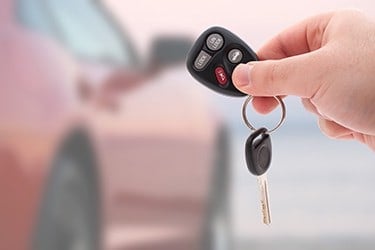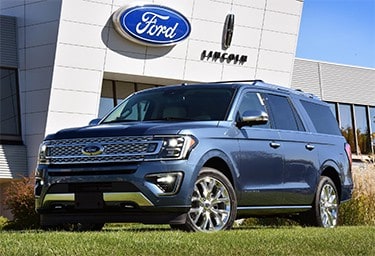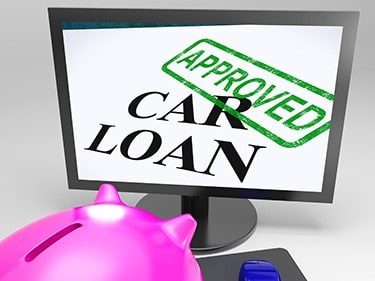Buying a New Car: Should You Pay Cash or Use Finance?

According to data from Statista, in the first quarter of 2019 85.4% of new vehicles sold in America were bought on finance, but should you use finance to fund a new vehicle purchase if you could afford to pay cash?
I sold an awful lot of cars during my time in the retail auto business, and I’ve bought a fair few for myself before and since. There are benefits to paying cash for a new car if you can afford it, but finance also has its benefits so it’s important to research both options before you make a decision.
To make my case for finance over cash I’m going to discuss:
- Benefits of paying cash for a car purchase
- Downsides to paying cash for a vehicle
- What do we actually mean by finance?
- Benefits of vehicle finance
- Downsides of auto finance
- When cash isn’t really cash at all
If you look around the internet you’ll find plenty of articles on the subject and lots of forthright opinions given in the comments section below, but I’m coming at the subject from the viewpoint of a dealer and a customer.
I’ve noticed a lot of very serious cash-only zealots saying you should never buy anything if you can’t afford to pay for it outright, and some of the more sensible ones do have some valid points. However, why are more than 85% of new vehicles bought on finance if it’s such a bad idea, and why do you think big corporations worth billions of dollars that could afford to pay cash use finance for their vehicle purchases?
Benefits of paying cash for a car purchase
The benefits of paying in full in cash for a vehicle are pretty obvious really. You own the vehicle outright, which means you are able to do what you like with it. There are no restrictions on where you can drive it, how you drive it, or how many miles you do.
There are no monthly payments to make, and you don’t have to worry about finding a large balloon payment at the end of a specified period of time. Finally, how long you keep the car is entirely up to you. You can sell it the day after you took delivery or you can keep it until the wheels fall off.

Downsides to paying cash for a vehicle
There are no downsides to paying cash for a vehicle on owning it outright, right? Well, that’s not strictly true. Unless you are buying something like a 1969 Camaro SS, a Ferrari F40 or some other car that’s actually going to go up in value, a car is a bad investment.
Most cars we buy lose money, and I mean a lot of money. It’s quite simply a fact of life that depreciation is the biggest cost involved in buying and owning a car or any type of vehicle and paying cash doesn’t make any difference to that fact.
Let’s say you have $20,000 sitting in a savings account earning next to no interest at the moment. If somebody asks you to give it to them for five years and at the end, they’ll give you back about $5,000, you’d tell them where to go and think they were insane, right?
Of course, you would. If you’d had that $20,000 five years ago and bought gold with it, you’d now have gold worth $21,764 because the price of gold has increased by almost 9% in the last five years.
Ok, I know what you’re thinking now. If you’d financed a $20,000 vehicle over the last five years at a flat rate of 3% you’d have paid $3000 in interest, which is $1,236 more than you would have made in profit on the gold if you’d invested it instead. However, don’t forget that the vehicle you paid $20,000 for five years ago is going to be worth $5,000 or less by now, so you’ve actually $15,000 on your initial investment. How does that sound?
Paying cash for a vehicle ties up a large amount of your hard-earned money in a highly depreciating asset, and that’s just one of the reasons why almost every business finances vehicles even if they could afford to buy outright for cash. Cash is better used invested in something that’s going to make money rather than lose it hand over fist, and even if it isn’t making a great deal, it’s still there for a rainy day if something happens and you need a large amount of cash.
It’s too complex a subject to get into here in any detail, but there are also many tax advantages for businesses to finance vehicles rather than paying for them outright in cash. If your accountant tells you otherwise, as some of my customers’ accountants have told them in the past, it’s probably time to get a new accountant before you buy a new vehicle.
What do we actually mean by finance?
When most people hear the term “auto finance” they inevitably think of a hire purchase agreement from the selling dealership. Although around 64% of auto funding is still supplied by the dealer selling the vehicle, that percentage has actually fallen from around 85% a decade or so ago. Buyers now get funding for vehicles from a variety of sources, such as banks and specialist online finance companies away from the dealership.

Don’t fall into the trap of only thinking about straightforward loans either, where you pay back the difference between the sale price and your deposit over a period, plus any interest. There are deals with balloon payments that offset a lump of the price until the end to keep the monthly payments down, and of course, there’s also leasing. Leasing is becoming an increasingly popular way of funding new vehicles, and to find out if leasing is right for you, why not check out my article here that explains all about leasing?
Benefits of finance
There are more benefits to financing a vehicle than you might expect. A lot of people, often older people it has to be said, think finance is a way for people who can’t really afford a car to get one. In some ways that’s correct, but it can also be a smarter way of buying a vehicle and managing your budget.
Let’s deal with some of the benefits the cash-only types will frown upon first. For a start, if you buy a vehicle on finance with monthly payments you might be able to get a better vehicle than if you were paying outright in cash.
You might also be able to buy something newer on finance than if you had to find the full asking price in cash, and that could save you money on maintenance and keep you on the road thanks to better reliability.
The most obvious benefit of finance is if you really do need a vehicle for work or some other necessity, it could mean the difference between having transport and not having transport. I personally have experience of times when I was able to afford a monthly payment but there’s no way I could find a lump sum to pay for a vehicle, tax it, insure it, etc.
Without financing a car I wouldn’t have been able to get to interviews and then a job, so auto finance was an absolute lifeline for me.
As I mentioned in the previous section, there are also potential tax benefits to financing a vehicle, depending on your circumstances. Whether you need a vehicle for personal use or a commercial for your business, it could pay dividends to speak to a finance professional about the tax-saving implications of various ways of financing.
A little spoken benefit of finance is when something is wrong with the vehicle and there’s a dispute between you and the dealer or manufacturer. As the finance company is actually the owner until all the payments have been made and the finance is paid off, they have a vested interest in the car being in proper working order.
If the finance company gets involved in a dispute, you can be sure they have a lot more power to get things sorted than you do as an individual.
Downsides of auto finance
Ok, there are some potential downsides to financing a vehicle. For a start, if you finance a vehicle there’s more than just the two of you in that particular relationship. If you buy on finance, and by that, I mean a finance agreement secured on the vehicle and not a personal loan, the finance company owns the vehicle until all the payments have been made.
A lot of older buyers don’t like that idea, but it’s becoming less of an objection these days with younger buyers being more used to things like mobile phone contracts and renting homes than their elders.
Although a monthly payment can often be more manageable than finding a lump sum upfront, it is a regular commitment that has to be met. If circumstances change and you find yourself unable to make the payments, you could eventually find yourself without the vehicle, and that could compound the financial problems if you can no longer get to work for example.
Finally, we have to talk about interest. Nobody like paying interest, but it’s why finance companies lend buyers money in the first place. If you buy on finance and pay interest, the vehicle is going to cost you more than if you bought outright for cash.

When cash isn’t really cash at all
A lot of customers still have the strange idea that going into a dealership and saying they’re paying cash will get them a better deal than if they were buying on finance. As a former sales exec, finance manager, sales manager and general manager of prestige dealerships, I can categorically tell you that is not the case at main dealers.
Cash deals only deliver discounts when the seller isn’t going to be putting the money through the accounts, and therefore not paying any tax on it. If a salesperson at a main dealer offers you a better deal for cash these days, it’s time to sniff the air for a very oversized rodent with a long, leathery tail.
But because some buyers still think paying cash means a better deal, they will borrow the money from somewhere other than the dealership and then tell the dealer they are a cash buyer. They may have got a personal loan from the bank, they may be cashing in an insurance policy, or they might be getting finance from an outside lender. Be careful about doing this.
The only time a dealer might be happy you are paying cash is if they need to get a deal over the line and the vehicle handed over to you in a short space of time to hit a target and achieve a bonus. Believe me, if you then find you can’t complete the deal on time because the money hasn’t come through as quickly as you’d hoped, don’t expect the dealer to stand on the deal. You have been warned.
